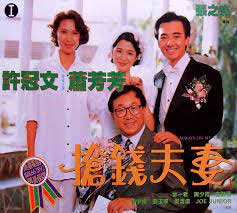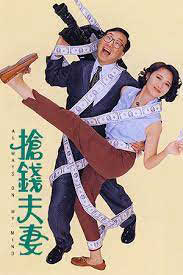

There are quite a few Hong Kong movies (this
includes "Supercop" and "Peking Opera Blues") that I've had to caution other
viewers to allow some time to "warm up"; in that they take a while to feel
like they are going anywhere, but are really good once they do get going.
One of the reasons why this is so is because the moviemakers actually take
time to develop -- and make us care for -- the main characters before plunging
them into all-out action or sticky situations. I would argue that if
one were to accept this, even with the slow start, it often makes for an altogether
stronger movie.
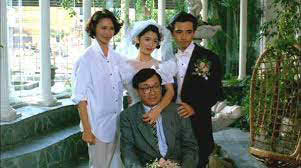
This is definitely the case for ALWAYS ON MY
MIND, a tender and touching paean to the family that has, IMHO, been badly
served by being marketed as a comedy (it did poorly at the Hong Kong box
offices). While this Tokyo Film Awards Best Asian Film of the Year
can't seem to help but contain some humor since it stars Michael Hui (of
such as "Chicken and Duck Talk") and Josephine Siao Fong Fong (who was the
comic relief as well as kungfu mama of "Fong Sai Yuk"), it definitely ought
to be approached as an intelligent (melo)drama rather than anything else.
"Only in Hong Kong..." would a film centering on a man with cancer and given
three months left to live be seen as potentially funny, and actually have
quite a few smile- and chuckle-inducing as well as tear-jerking moments.
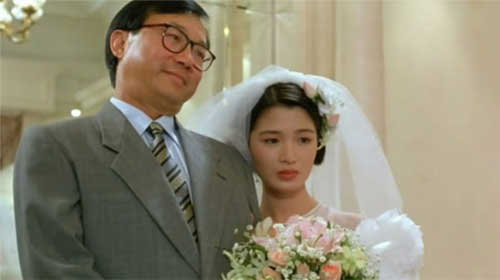
Although Michael Hui's character (TV anchor,
Chang Yan Wai) is the movie's main man, we actually see all the other members
of his nuclear family -- his wife (played by Josephine Siao), teenage daughter,
teenage son and preteen daughter -- before we get introduced to him.
Also, he is shown being a husband (to a woman of strong and distinct personality!)
and father (to a love-sick son, an intent-on-marrying elder daughter, and
a littler daughter whose current major aim in life is to figure out where
babies come from!), and at work, for quite some time before he learns of
the illness that, instead of slowing him (and the film) down, proceeds to
catapult him (and the film) into really frenzied action.
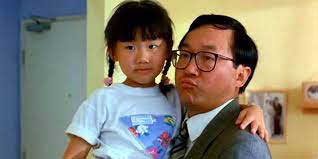
To summarize much of the rest of the plot (while
still leaving room for some surprises): The disclosure from his doctor prompts
the TV anchor to work longer hours in order to leave his family with a nice
nest egg. He is helped in his money-making efforts in that his bosses,
upon discovering that he is a dying man, figure that he will no longer be
afraid to say anything, make him a news commentator as well as broadcaster
(one of whose first jobs is to announce to the world that he does not have
long to live), and he becomes an extremely popular personality for doing so.
The major complication is that, not wanting to worry or depress his wife
and children, he tells them that news of his diseased condition and impending
demise are just lies, a marketing and ratings ploy by his bosses. Because
he is known to his family as a hypochondriac and they figure that everyone
in pre-Handover Hong Kong (this movie was made in 1993) is primarily intent
on making money however they can, they believe him...
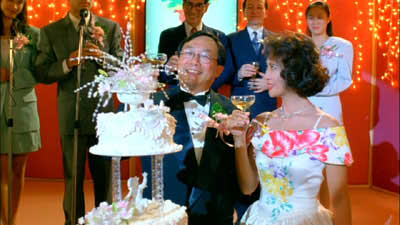
N.B. I hope that people won't dismiss this U(nited) F(ilmmakers) O(rganization) production as the kind of "disease weepie" that – more than occasionally -- features on American cable and network TV. Instead, I would recommend this directorial effort of Jacob Cheung (who also helmed the highly rated "Intimates" and "Cageman") as a rare sweet love story in which the people who are foremost on the mind of a man are his wife of many years and the children they have begotten.
My rating for the film: 8.5.
